De Zwarte Hond Completes A New, Flexible And Sustainable School Building For Het Element

Architecture firm De Zwarte Hond has completed a new, flexible and sustainable school building for Het Element in the Netherlands.
The new school building for Het Element combines two pre-vocational secondary schools, three sports halls, a dojo and a language centre.
Envisioned as a compact volume, the studio created extra green outdoor space, short walking distances and a vibrant central heart to which all the different clusters are connected.
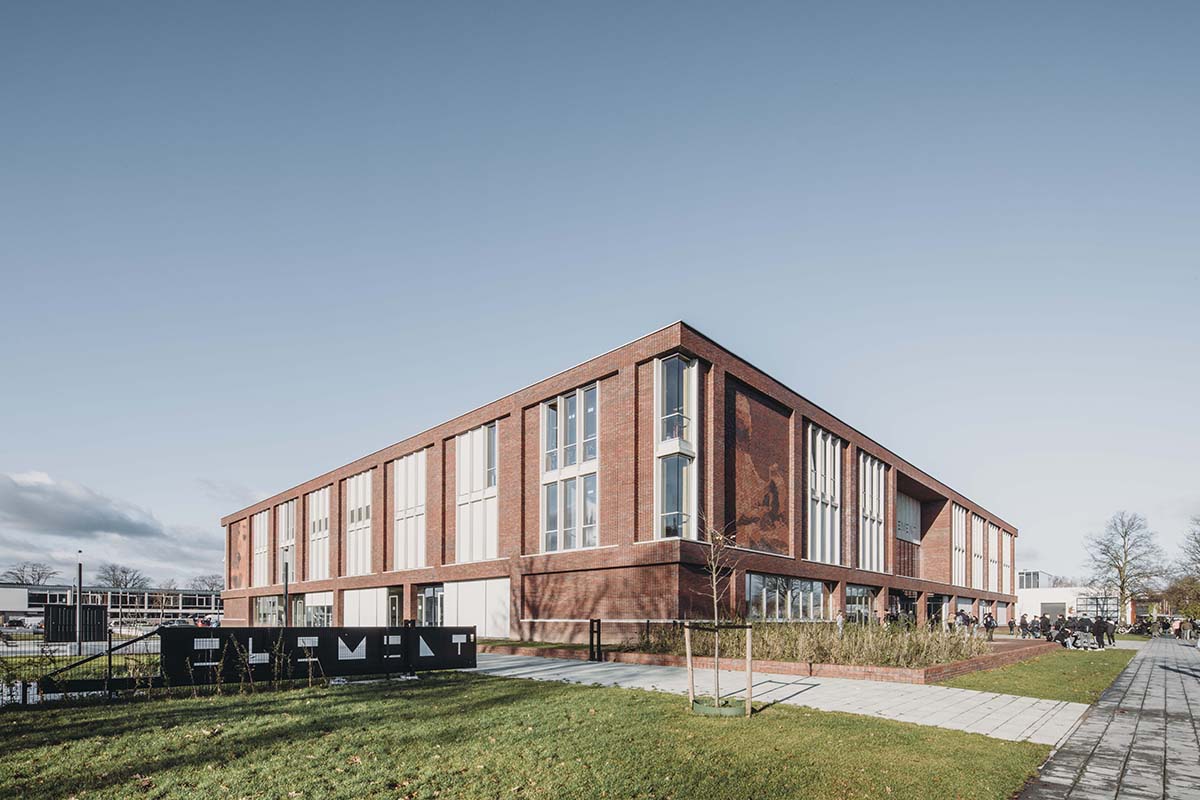
The school is described as "a healthy, safe, and green learning environment", as the building was also a challenge given the location of the new building in the middle of an industrial and stony area.
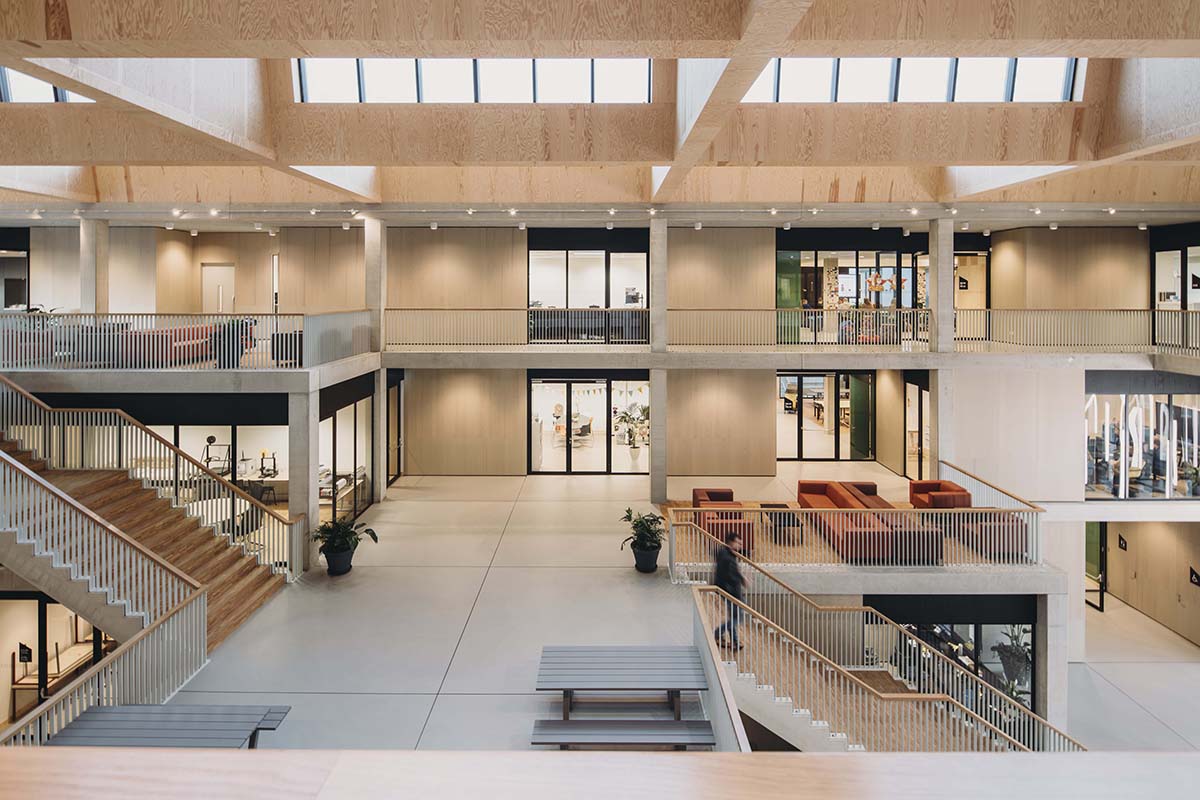
"We stood out because we focused on the connection of the Kaliumweg plot with the neighbourhood," said architect and partner Bart van Kampen.
"We immediately saw the green field's potential which is used for events and emergencies."
"The field at the front of Het Element has now been transformed into a garden, while we have also greened the sides and back."
"This also marks the start of making the Isselt neighbourhood in Amersfoort ‘climate-proof’," Van Kampen added.
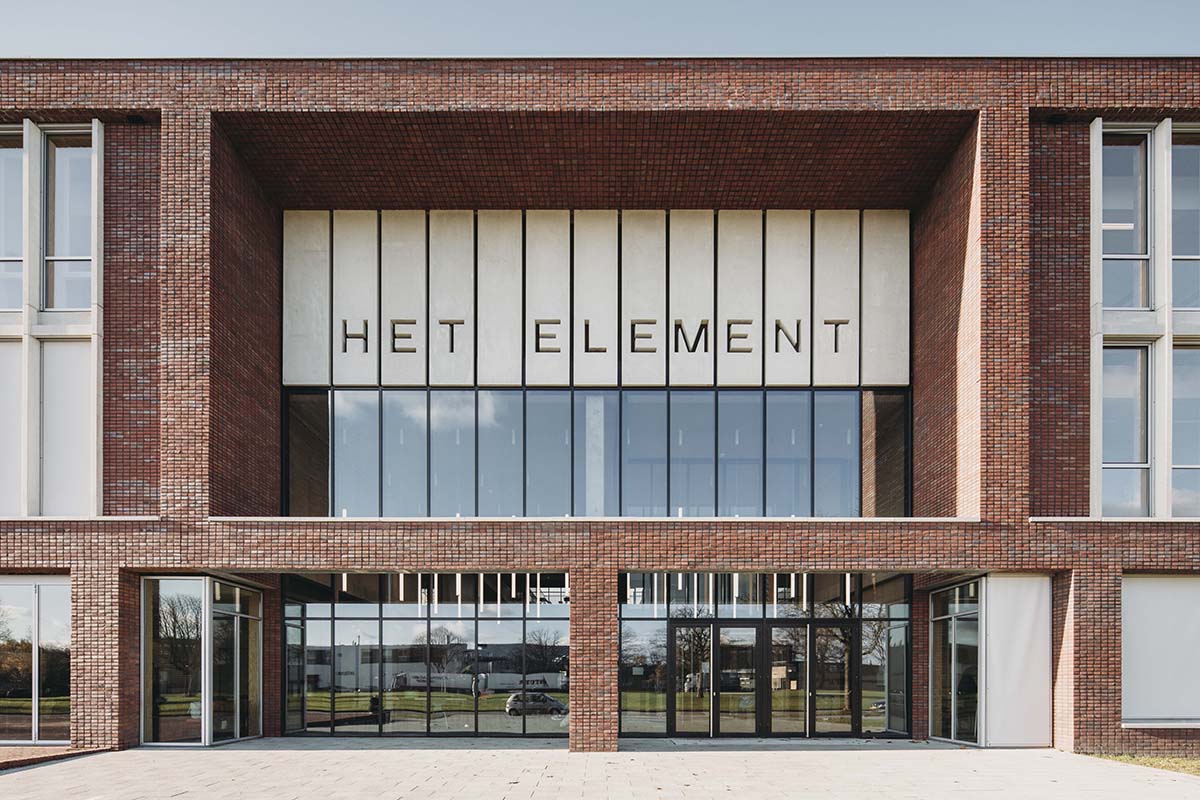
A compact building with a friendly atmosphere
Encompassing a 12,000-square-metre area, the school accommodates up to 1,000 pupils, Het Element is a school with a large scale.
The architects designed the building as a vibrant hub that imagines it in human scale and connects the different clusters of clubhouses.
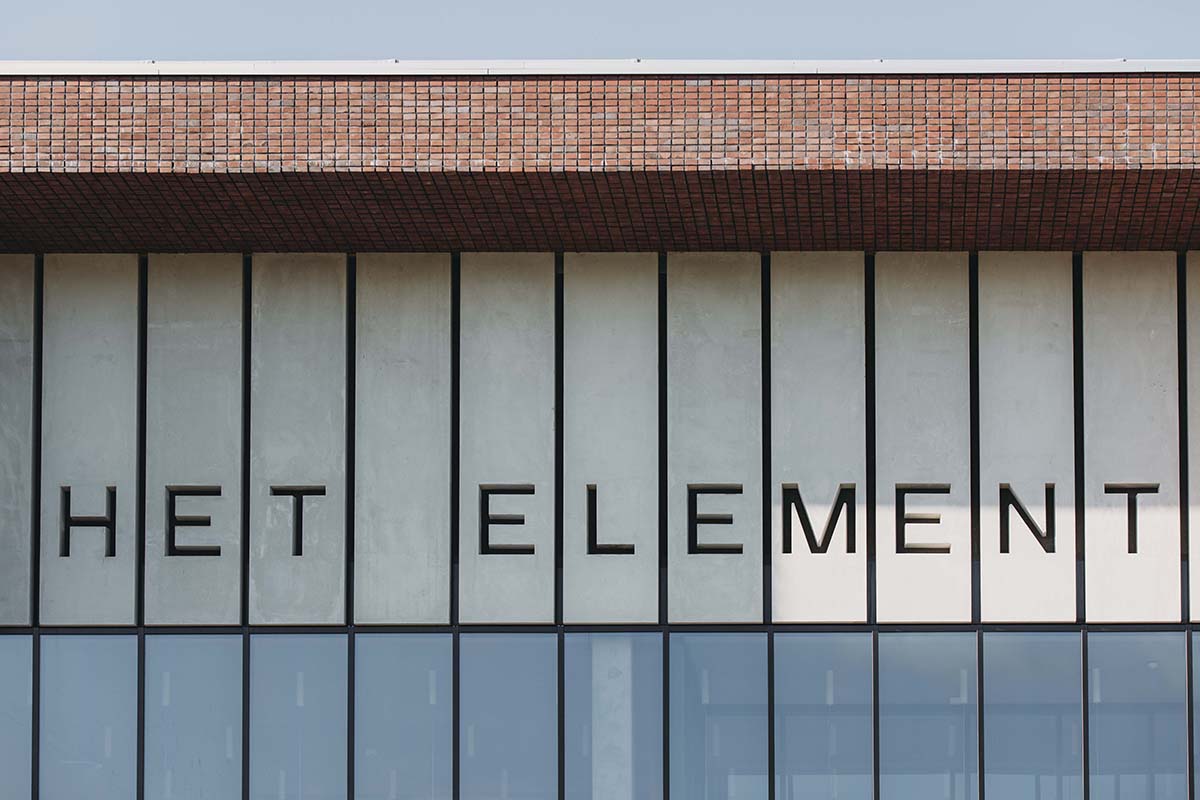
"Each clubhouse has a unique identity with its own colour palette and interior. Lots of daylight enters the central heart through the roof, making it feel like a courtyard with all the clubhouses around it," said the studio.
"The building is designed with a generic column grid as the basis, allowing flexibility for future adaptations. The facade with brick mosaics of different trades refers to the practical education offered at the school."
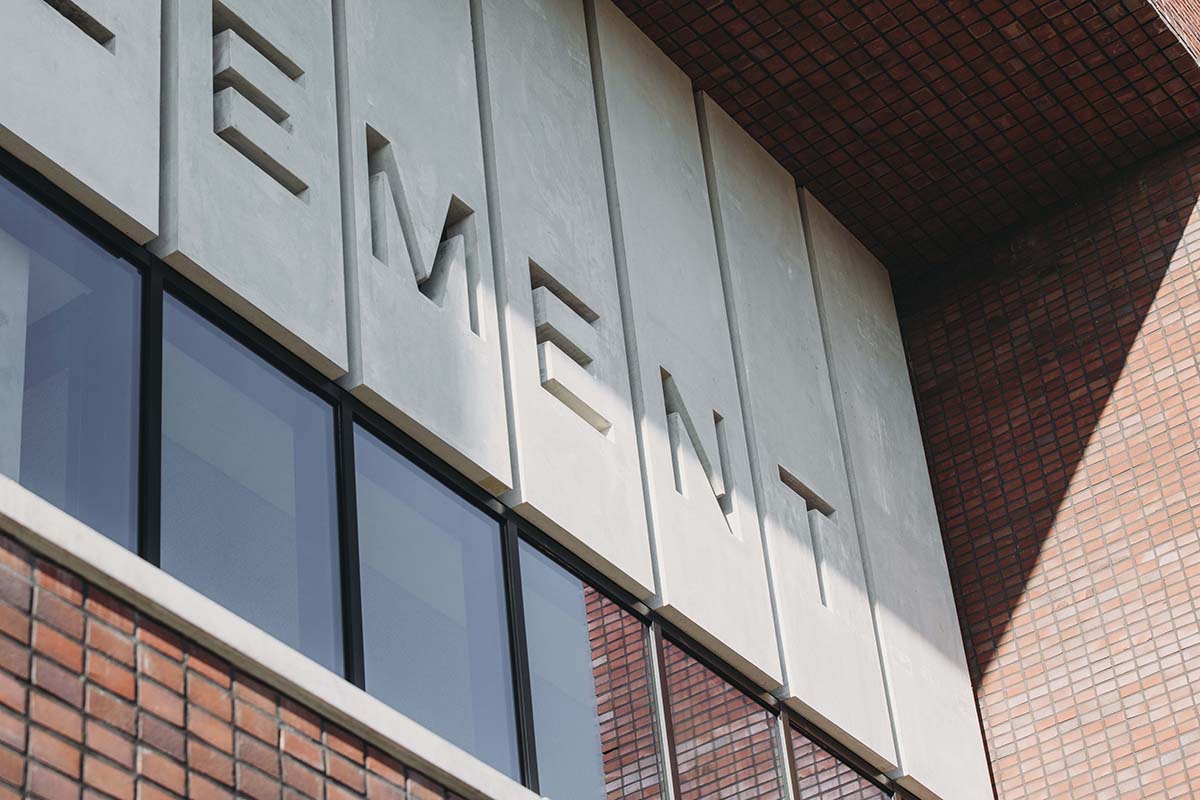
While the interior roof is covered with wood, the light entering through the saw-toothed roofs references the industrial environment.
"It’s a sustainable building because it is compact, with low transmission loss and easy to maintain," said Bart.
"We used brick for the facade and wood inside, which makes it warm and cosy."
"The materials and details used, such as concrete and aluminium frames, will last a long time. The roof is also full of solar panels," Bart added.
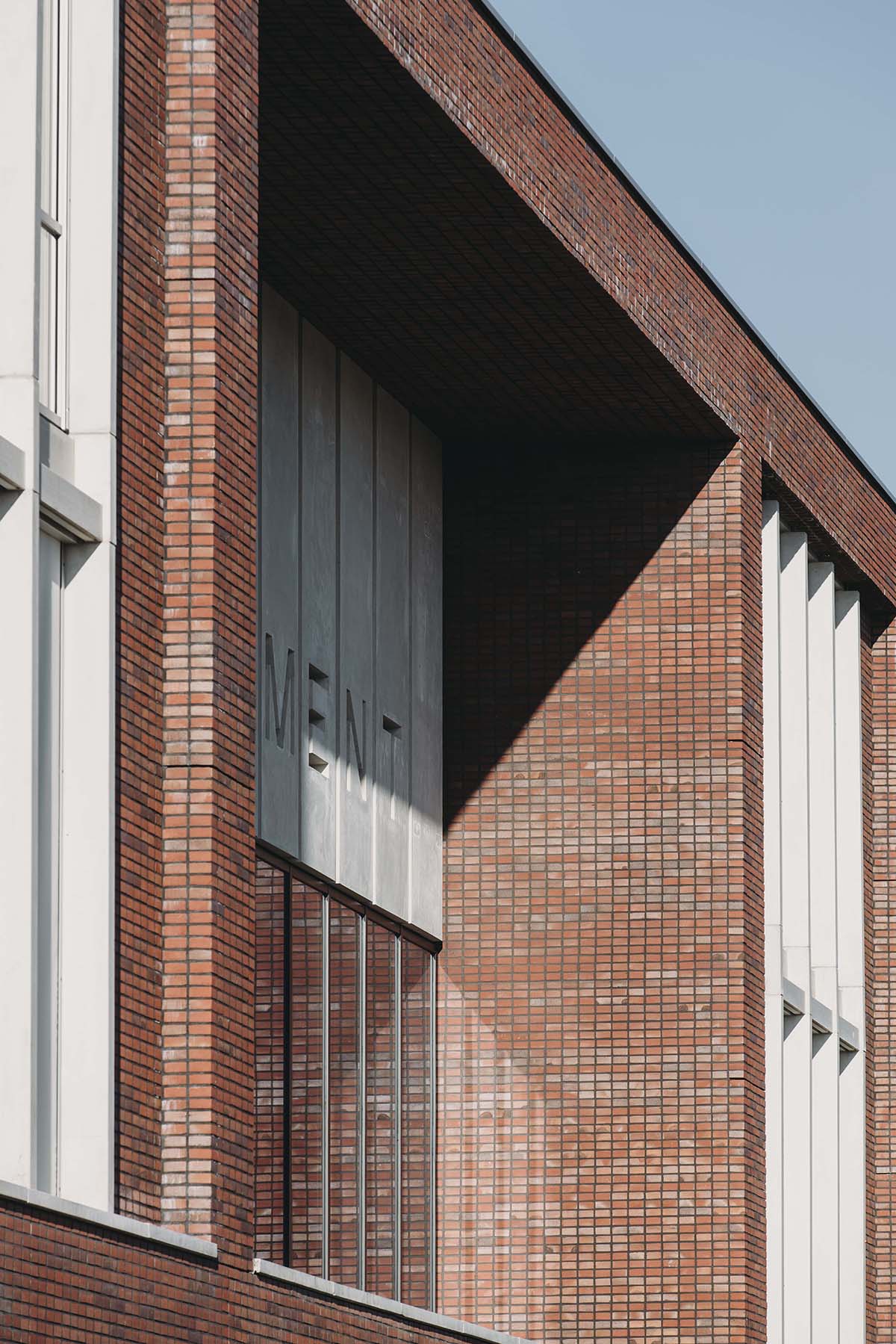
Built for the long term
"Sustainability is, of course, about using less energy and using materials wisely. But nothing is more sustainable than continuing to use a building for as long as possible," the studio explained.
That is why Het Element has a flexible shell, so that it can be used in a different way in the future.
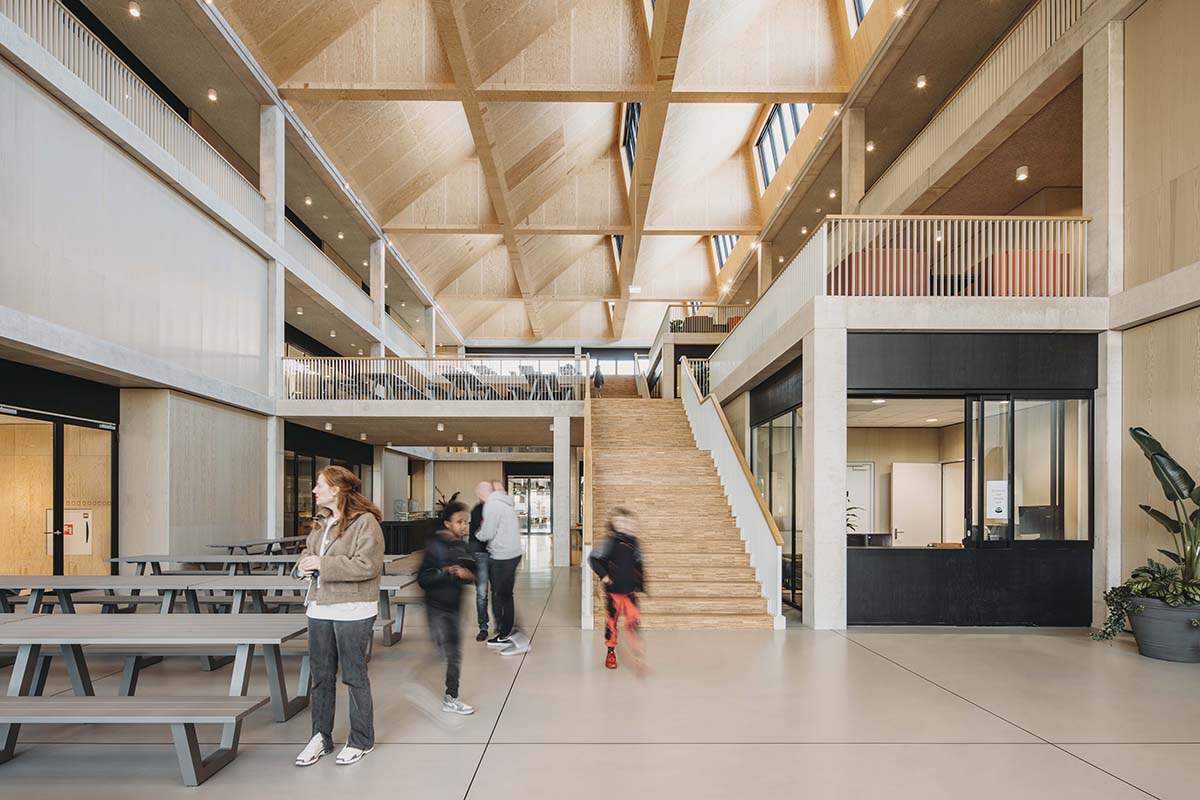
"Our vision is never to demolish again," said Bart.
"In the case of Het Element, this means that we have created a building that is adaptable and can also be used later as a commercial, healthcare or residential building."
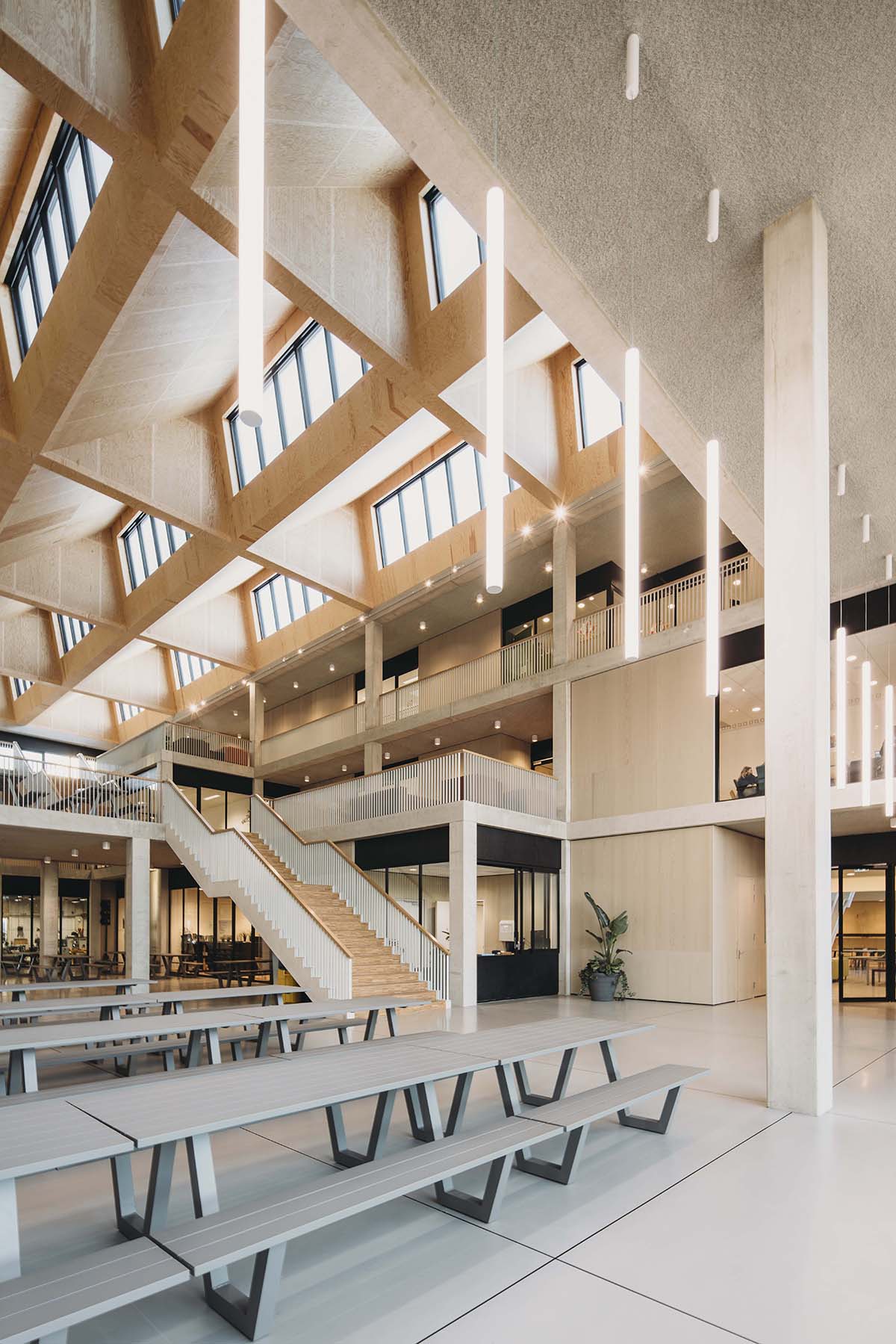
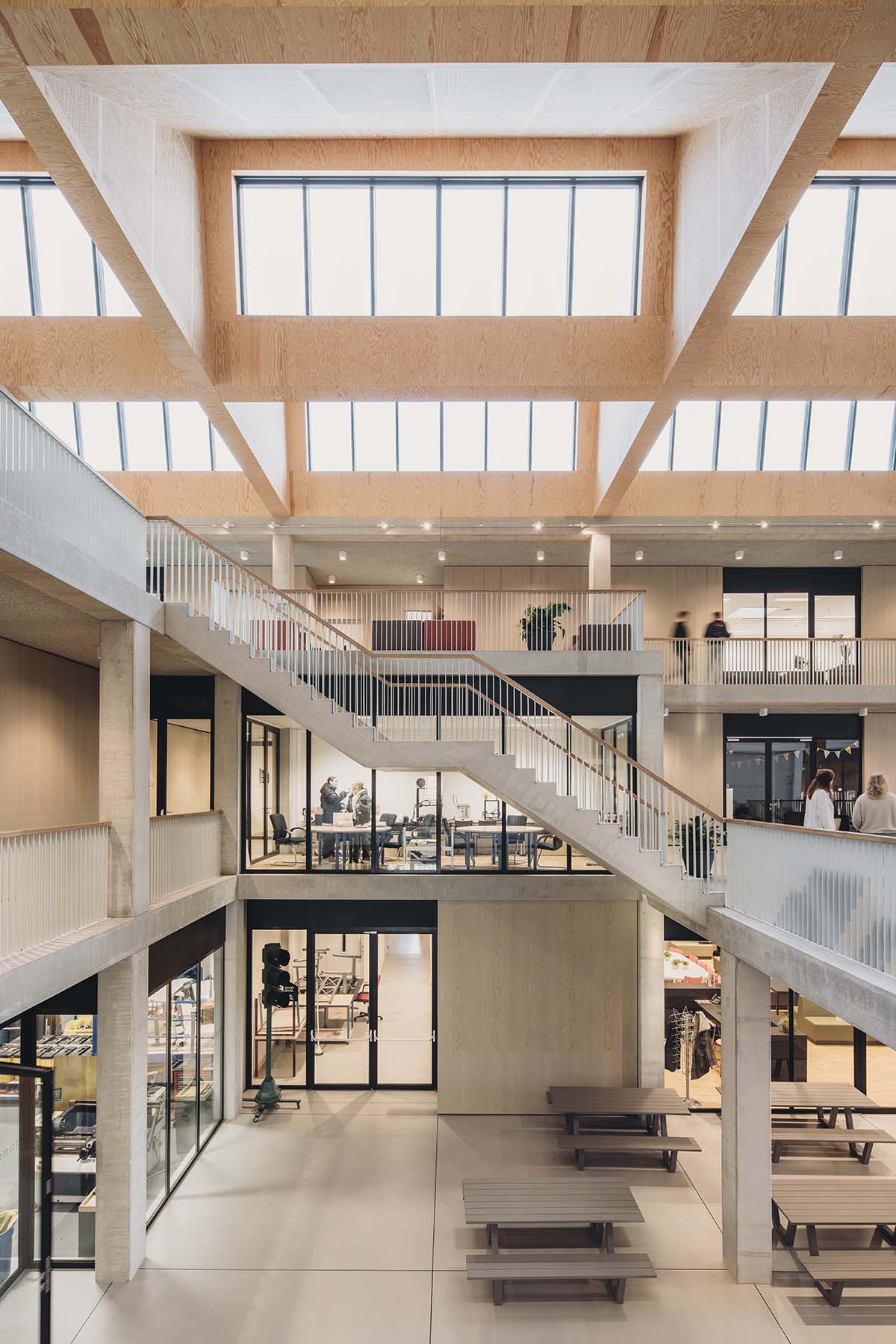
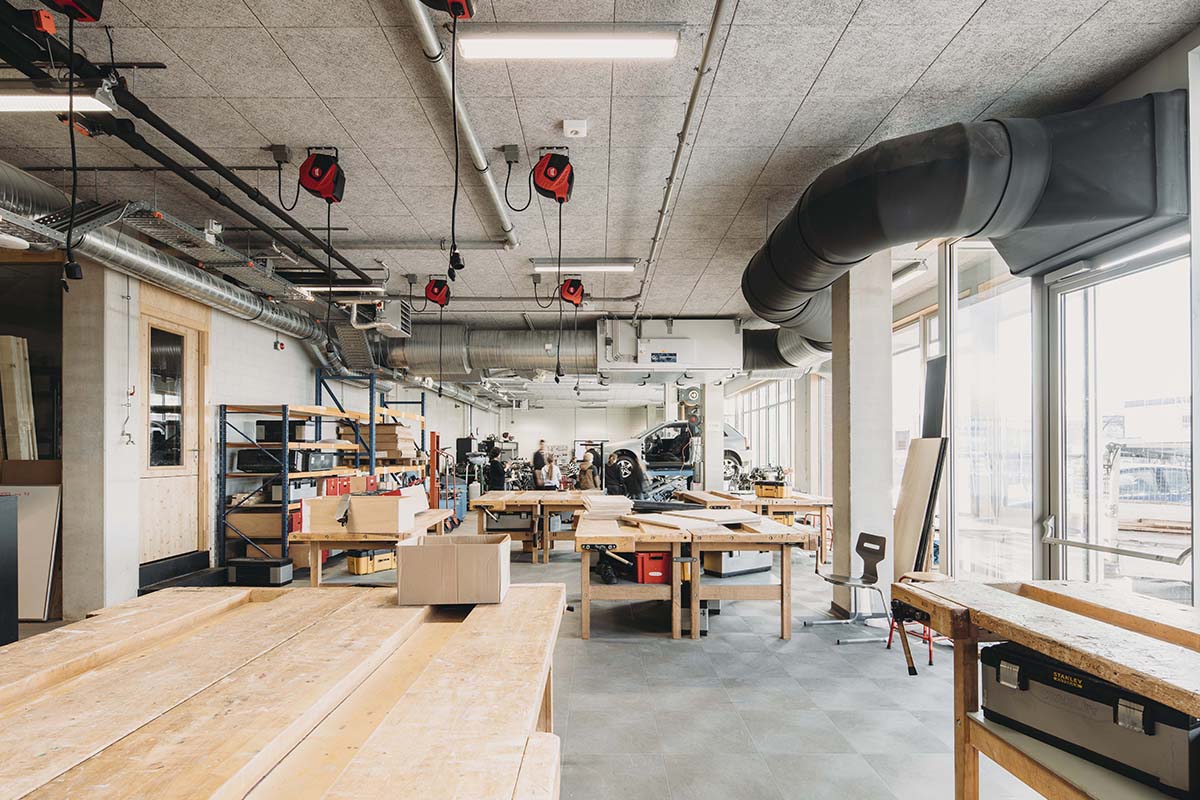
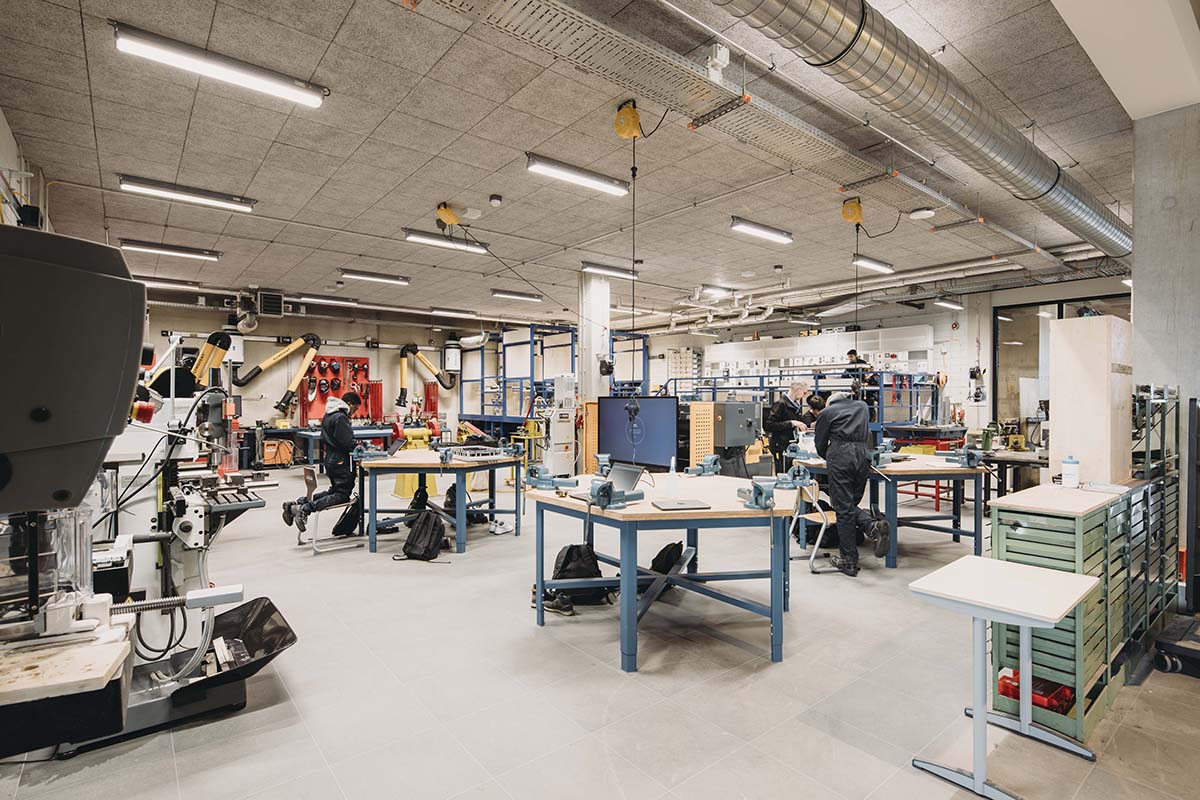
De Zwarte Hond and Loer Architecten designed Mercado apartments with stepped and greenish gridded façade in Groningen, in the Netherlands.
The firm completed an office complex, made of timber, based on a circular and sustainable approach on the Noordzeeweg, in Amsterdam Westpoort.
Project facts
Architects: De Zwarte Hond
Location: Amersfoort, the Netherlands
Size: 12,000m2
Completion date: 2023
All images © Eva Bloem.
> via De Zwarte Hond
